OptiLayer provides Color Design options enabling design of multilayers with specified color properties. In order to design such coatings, Color Targets are to be specified. OptiLayer allows one to specify up to 99 color targets. Each target contains:
Convenient Preview Option allows one to visualize specified color targets. See a video example at YouTube |
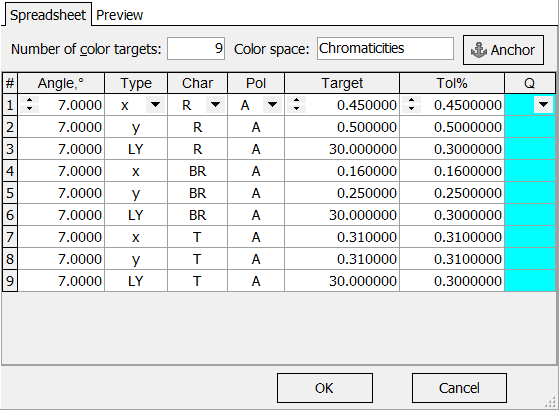
Example. Color Targets for a multilayer reflecting light of yellow and blue colors from its front and back sides. The coating transmits white light. (To see how Preview option works, put the mouse over the picture) |
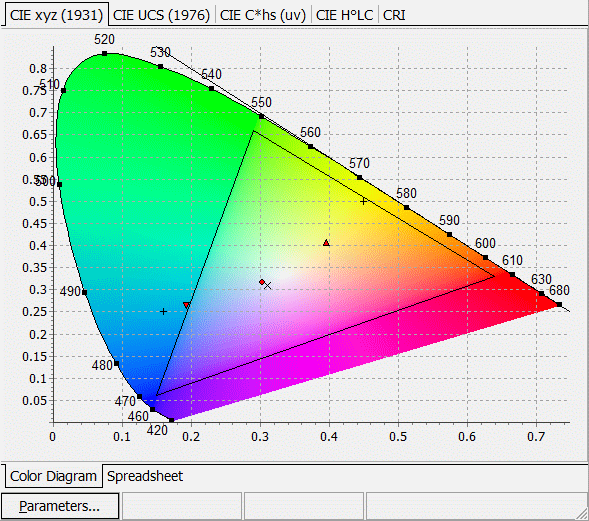 |
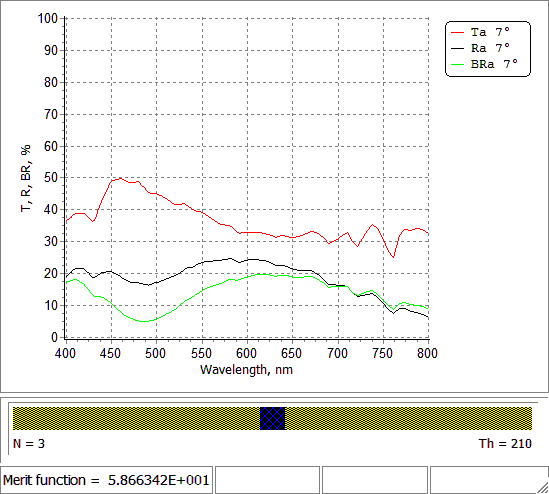 |
| Designing of color coating reflecting yellow and blue colors from its front and back sides. | |
| OptiLayer allows one to specify complicated targets combining conventional target, color target and integral target. For example, if someone wants to design an anti-reflection coating reflecting bluish and greenish colors.
|
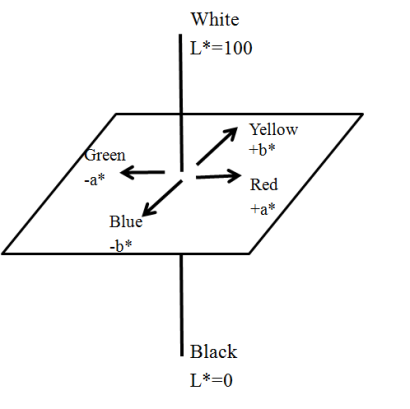 |
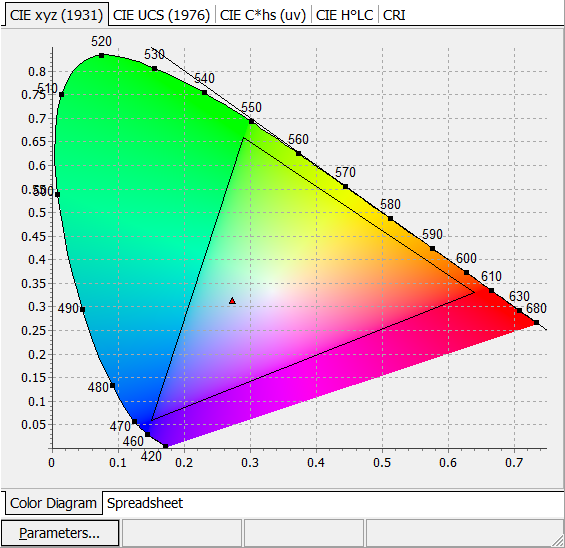 |
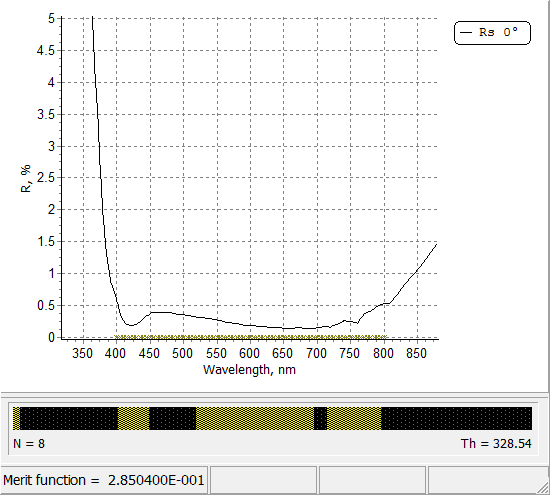 |
| As a result of Needle Optimization procedure, 8-layer anti-reflection coating reflecting bluish and greenish light is obtained. (In order to see design process, put the mouse button on the right hand side picture) | |
Design with Range Color Targets |
|
| Color Range Targets are specialized targets described by a convex polygon. Range Color targets are available for Chromaticity, CIE YU’V’ 1976, CIE YU’V’ 1960, Hunter Lab, CIE L*a*b*, CIE L*ru*v* color spaces only.
If a point in the selected color space is inside a polygon of the Color Range target, the corresponding term in the Merit function is zero. If the point is outside the polygon, the corresponding term in the Merit function is computed as a squared distance from the point to the boundary of this convex polygon, as show below. |
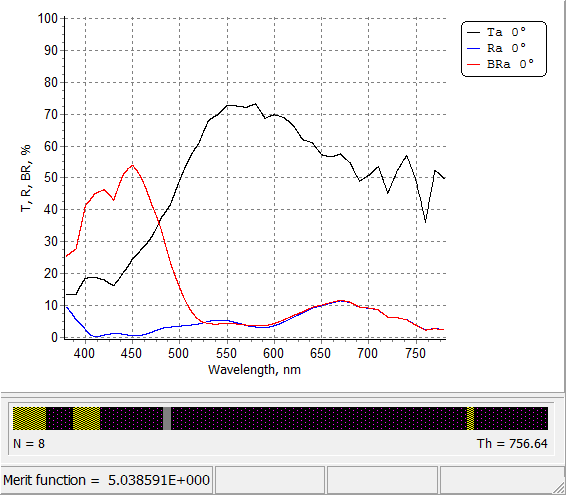 Example. Designing a color coating reflecting yellow and violet colors from sample’s front and back sides (in order to see the design process, put mouse on the picture). Example. Designing a color coating reflecting yellow and violet colors from sample’s front and back sides (in order to see the design process, put mouse on the picture). |
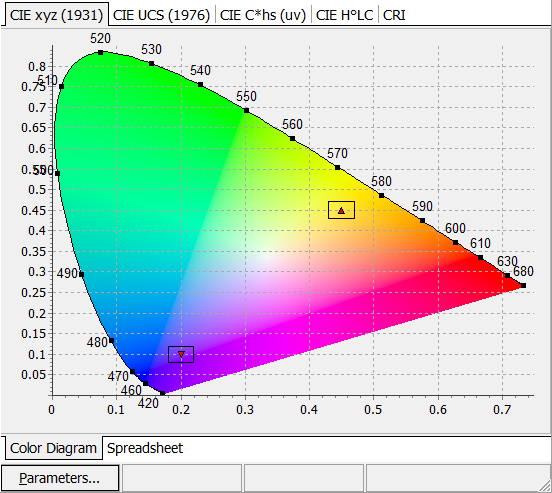 |
Color diagram is alive: you can easily enlarge any part of the diagram in order to see the details (put mouse on the left pane picture in order to see an example). |
Read more in our publications:
|
|
Look our video examples at YouTube
OptiLayer videos are available here:
Overview of Design/Analysis options of OptiLayer and overview of Characterization/Reverse Engineering options.
The videos were presented at the joint Agilent/OptiLayer webinar.